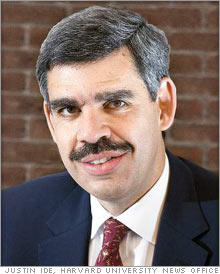Financial Preservation Advice from Michael Southam
Michael Southam of Rockcliffe Parners, based in Geneva, Switzerland, gave a talk in 2010 that had the catchy title "How to lose a billion."
Five major points in summary
1. Hold your position: The chances of having wealth in successive generations is remote, as lightning rarely strikes twice, and what created wealth in one generation might not necessarily work for the next. So it's important to develop strong wealth preservation strategies to position the family to take advantage of future opportunities.
2. Defend your position: Beware of all who would have you part with your money. All families interviewed by Southam had been victims of scams, thefts, bad investment decisions through dubious schemes, even from close advisers.
3. Multi-generational truths: An even distribution of wealth among offspring will dismantle large fortunes over time, and multiple spouses have a "logarithmic effect." A conscious decision must be made to sustain the fortune whether in the descendants' quality of life or the continuity of the company that created it.
4. Focus on inter-generational flexibility: The majority of descendants won't contribute to sustaining wealth, but it does offer 'vocational freedom' or the opportunity to give back to society in form of philanthropy in arts, science, medicine, and so on. Since 19/20 members in Southam's study spent more than they made, 1 in 20 helped sustain the fortune, and only 1 in 50 created wealth, it's important to fast track the family business talent, maintain the non-business talent and isolate the 'dangerous' ones.
5. Educate and inculcate values and principles: Pragmatism, realism, and a strong sense of respect for themselves is a key factor in avoiding conflict. Perceptions of unequal treatment, personal grievances and divergent strategy can result in destructive conflict.
Words of wisdom we would all do well to aspire to internalize. In his talk, Southam described his 'glorious heritage' as descendant of two wealthy European families that commenced in businesses in the 1800s.
Courtesy: Michael Southam, Rockcliffe Partners, with gratitude.






![[father]](http://s.wsj.net/public/resources/images/OB-DX078_Father_C_20090619123601.jpg)